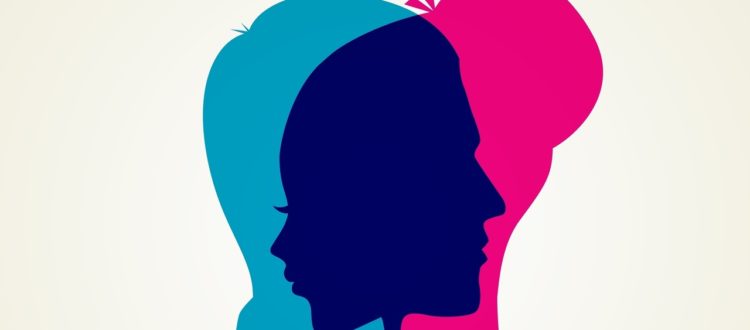Men and Women
The Purple Sheet
Parshat Bereshit– October 28th & 29th 2016 כ’ז תשרי תשע”ו
Men and Women
This Shabbat we once again begin the Torah cycle with reading Bereshit – Genesis. In it, we get many details of the lives of those individuals who were seminal to creation of not only the Jewish people, but of all of mankind. As our rabbis tell us in the Talmud, מעשה אבות סימן לבנים- the actions of the forefathers are a tell-tale sign or microcosm of all that will follow. As such, analysis of the details of these personalities gives us great insight into some basic life lessons.
Before the first woman is created, God declares that, “It is not good for Man to be alone. I will make him an ezer kenegdo – a helpmate opposite (or against) him.” A very apt description of our First Lady as indeed more often than not the relationship between men and women is one where they compliment, and at times are at odds with, one another.
Curiously, the Torah narrates that as soon as God decides that Adam needs a woman in his life, the process is interrupted and God brings every type of animal to Adam to see what Adam would call them.
And Man assigned names to each animal and bird of the sky and to all the wild animals of the field. But for Adam, he did not find a helper that corresponded to him.
Only after this exercise does God put Adam into a deep sleep and creates the woman from him. So why the visit to the zoo? Why have Adam spend so much time watching Animal Planet and getting to know each and every beast to the point that he could identify and name them?
We can get a hint at what God intended by Adam’s reaction to Eve once he first sets his eyes upon her. ” זאת הפעם – This is it!” he declares. It is a “eureka!” moment of discovery as he now found the thing that he sensed he was missing.
This was necessary, for Adam had to learn to relate to something outside of himself before he would be able to seriously have a meaningful relationship with another. He was created alone and was literally the center of the world. When God brings the animals to him to name them, Adam is, for the first time in his short life, looking beyond himself. By giving each a name, he was seeing these creatures for what they were and defining them through expressing their essence with a name. Through this, God was preparing him for his wife by getting him accustomed to sharing his world with another and noting life outside of himself.
This is a crucial step and prerequisite for any successful marriage or relationship. Each party must be willing to step outside of their own limited world view; to see things in a way other than their own and see the other for what they are, which is often very different from oneself. This is why Eve is not called ezer kemohu a helpmate like him but ezer kendegdo – a helpmate in contradistinction to him. The fact that she is unique and distinct, operates differently and views life unlike the way that Adam does, is both a challenge and a tremendous opportunity for the couple to build a relationship and life together. It is no big deal to relate with a clone of one’s self and to just create more of the same. It is a whole new world, literally and figuratively, to connect and build with an opposite.
Also noteworthy is that it is the Man who has the greater challenge in this area than the Woman. He has to work harder to see things her way and not the other way around. This is indicated by the fact that Adam was created first and hence alone in the world, having to learn to share it with Eve. Eve, from her inception, shared her world with Adam. It is generally more difficult for the male to move beyond his ego to see another perspective and to share, than it is for the female. Or, as Rabbi Pamensky in his marriage seminars used to say, “Women are Relationship Beings, Men are Not.”
This notion comes to play at a Jewish wedding which frowns upon double ring ceremonies. The Man betroths the Woman by giving her something of value (usually a ring) and not vice versa. It is the Man who must make the greater effort to be a giver; the Woman generally is more of a natural at it. I often illustrate this idea under the chuppah when I ask the groom what his job is. He is usually speechless because he does not suspect that he is getting a quiz at his wedding. So I help him and tell him that his job is to make his bride happy. I then turn to the bride and ask her the same question. She thinks she has it easy, now that she has heard the answer and says, “To make him happy.” “No”, I tell her, “Your job is to tell him what makes you happy.” For as Rabbi Noah Weinberg zt”l used to always say, “A Happy Wife is a Happy Life.”
Once men and women, especially men, learn to share their world with another, then and only then can they build a Garden of Eden together.
She’s my inspiration lady,
She’s my kind, reaction lady
Sees my situation every day
She’s my inspiration lady,
My anticipation lady
She’s my inspiration all the way
-Gordon Lightfoot

